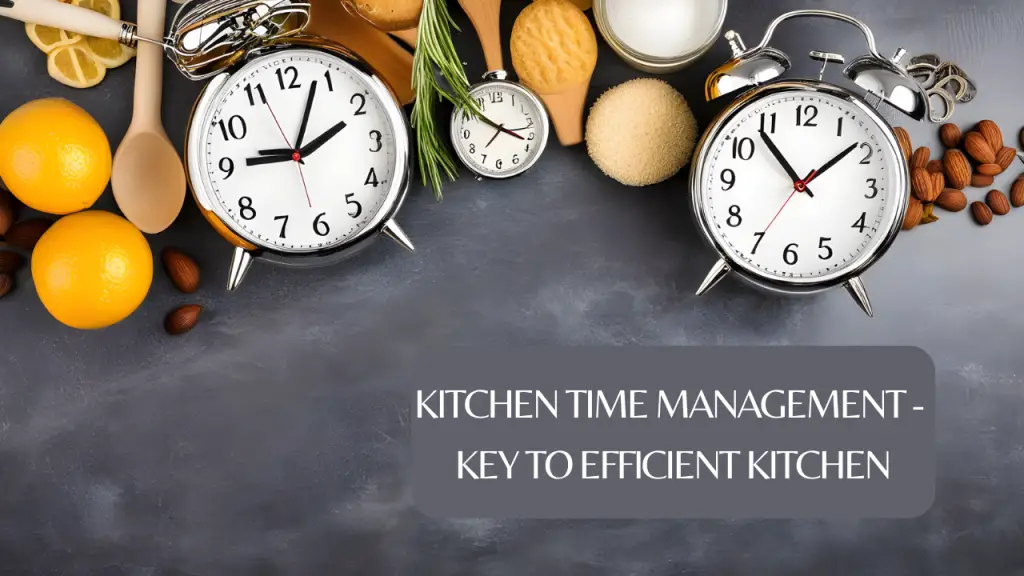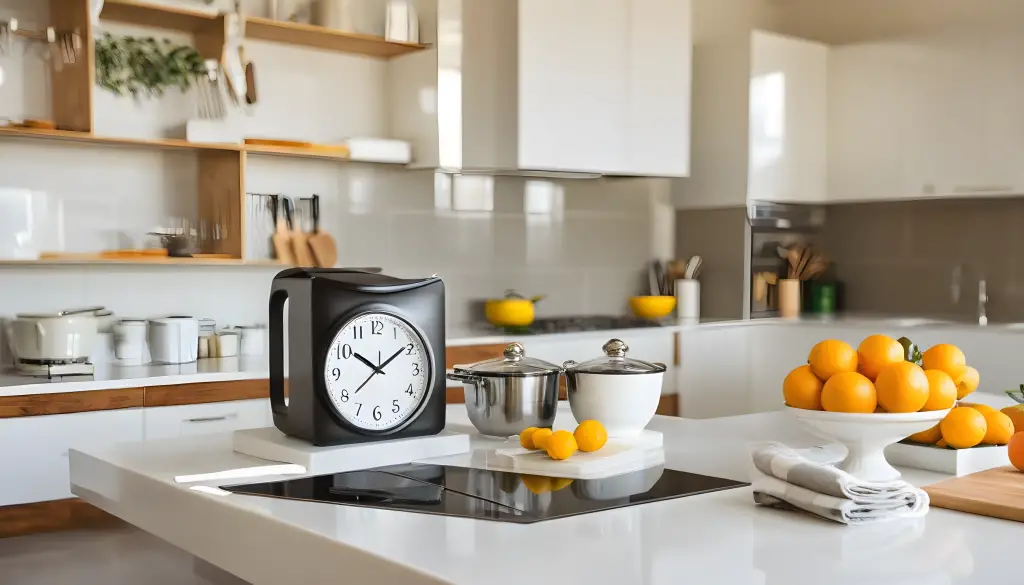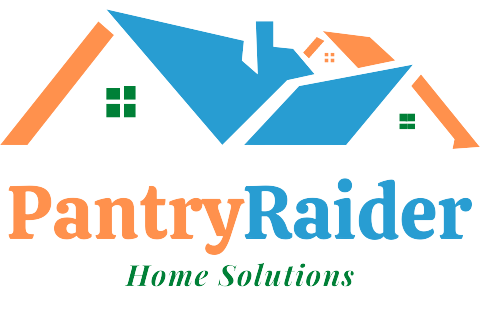
Effective kitchen time management is the secret ingredient to an efficient and stress-free kitchen. In this article, we’ll explore how to allocate your time efficiently, implement automation and time-saving tips, and maximize productivity in your culinary space.
What is Kitchen Time Management?
Kitchen time management refers to the efficient use of time in a kitchen setting, particularly in the context of meal preparation and cooking. It involves organizing tasks, prioritizing activities, and optimizing workflows to ensure that food is prepared and served in a timely manner. Effective kitchen time management is crucial in both home and professional kitchens to avoid delays, ensure the freshness of ingredients, and streamline the cooking process.
Key elements of kitchen time management include:
- Meal Planning: Plan your meals in advance, including deciding on recipes, making a shopping list, and ensuring you have all the necessary ingredients. This helps to avoid last-minute rushes to the grocery store and ensures that you have everything you need when you start cooking.
- Preparation: Prepare ingredients ahead of time by washing, chopping, and measuring them before you start cooking. This can save a significant amount of time during the actual cooking process.
- Organization: Keep your kitchen well-organized to easily locate utensils, pots, pans, and ingredients. This reduces the time spent searching for items and promotes a smoother cooking flow.
- Multitasking: Learn to multitask effectively by handling multiple tasks simultaneously. For example, while something is cooking on the stove, you can use that time to chop vegetables or prepare another component of the meal.
- Timers and Alarms: Use timers and alarms to remind you of different cooking stages, especially when multitasking. This helps prevent overcooking or burning, allowing you to focus on other tasks without constantly checking on each dish.
- Clean as You Go: Keep your workspace clean by washing utensils and cutting boards as you finish using them. This prevents clutter from building up and makes the cleanup process more manageable.
- Prioritization: Prioritize tasks based on their importance and time sensitivity. For example, start with items that take the longest to cook or dishes that need to be served first.
- Teamwork (in professional kitchens): In a restaurant or commercial kitchen, effective communication and teamwork are essential. Chefs and kitchen staff need to coordinate their efforts to ensure a smooth flow of food production.
- Adaptability: Be flexible and able to adapt to changes in plans or unexpected challenges. This skill is crucial in handling unforeseen circumstances that may arise during meal preparation.

Efficient Time Allocation
Meal Planning: Dedicate a specific time each week to meal planning. This time investment will save you hours of indecision and last-minute grocery trips.
Prep Time: Set aside time for meal preparation. Chop vegetables, marinate meats, and assemble meal kits in advance to streamline your cooking.
Clean as You Go: Incorporate a “clean as you go” habit. Allocate a few minutes during cooking to wash dishes, wipe countertops, and put away ingredients.
Weekly Cleanup: Schedule a weekly deep cleaning session in your kitchen. This ensures a consistently clean and organized space.
Automation and Time-Saving Tips
Kitchen Gadgets: Invest in time-saving kitchen gadgets like food processors, slow cookers, and pressure cookers. They handle time-consuming tasks with ease.
Online Grocery Shopping: Save time by shopping for groceries online. Many stores offer delivery or curbside pickup options.
Recipe Apps: Use recipe apps that provide step-by-step instructions and timers. They make it easy to follow recipes without constantly checking the clock.
Batch Cooking: Set aside a day for batch cooking. Prepare multiple servings of your favorite dishes and freeze them for future meals.
Maximizing Productivity
Work Zones: Organize your kitchen into work zones based on functionality. Have a prep zone, cooking zone, and cleaning zone to minimize unnecessary movement.
Prioritize Tasks: Create a to-do list and prioritize tasks. Focus on the most time-sensitive or crucial tasks first to make the best use of your time.
Set a Timer: Use timers to stay on track. Set a timer for tasks like food prep, cooking, and cleaning to avoid distractions.
Delegate Tasks: If you have family members or roommates, delegate tasks to share the workload. This can free up valuable time for everyone.
Efficient time management is the recipe for a stress-free and productive kitchen. By allocating your time wisely, implementing automation and time-saving tips, and maximizing productivity, you can make your time in the kitchen more enjoyable and less stressful.
Top 10 Kitchen Time Management Gadgets
- Food Processor
- Slow Cooker
- Pressure Cooker
- Stand Mixer
- Instant Pot
- Immersion Blender
- Kitchen Timer
- Rice Cooker
- Meal Planning App
- Recipe Apps
Importance of Time Management in the Kitchen
Time is a precious resource, and nowhere is this more evident than in the heart of every home—the kitchen. In the hustle and bustle of daily life, mastering the art of time management in the kitchen can be a game-changer. Let’s delve into why efficient time management is crucial and explore practical tips to make your culinary journey smoother and more enjoyable.
Time Management in the Kitchen: A Crucial Aspect
In the chaotic symphony of pots clanging and timers buzzing, time management emerges as a silent conductor, orchestrating the efficiency of your culinary endeavors. Beyond mere practicality, it transforms the kitchen into a space where creativity and nourishment coalesce seamlessly.
Benefits of Effective Time Management

Saving Time and Reducing Stress
A well-managed kitchen translates to saved minutes and reduced stress. Imagine the bliss of effortlessly gliding through meal preparation, knowing that every ingredient is in its place and every task is timed to perfection.
Ensuring a Healthier Lifestyle
Time management in the kitchen extends its benefits to your well-being. With organized meal planning, you’re more likely to opt for nutritious choices, steering clear of the temptation of fast food or unhealthy snacks.
Enhancing the Overall Cooking Experience
Efficient time management elevates the joy of cooking. It provides the freedom to experiment with new recipes, savoring the process without the constant ticking of the clock.
Organizational Tips for Time-Efficient Cooking
Preparing a Weekly Meal Plan
A weekly meal plan is the cornerstone of kitchen time management. It not only saves time but also aids in creating a well-balanced and diverse menu. Take a moment each week to plan your meals, considering factors like variety, nutritional value, and preparation time.
Creating a Well-Organized Kitchen Workspace
An organized kitchen is a time-efficient kitchen. Designate specific areas for different tasks, keeping frequently used items within easy reach. Invest in storage solutions that optimize space, making your kitchen a haven of efficiency.
Utilizing Time-Saving Kitchen Appliances
Modern technology offers a plethora of time-saving kitchen appliances. From instant pots to food processors, these tools can significantly cut down preparation time, leaving you with more moments to savor your culinary creations.
Prioritizing Tasks in the Kitchen
Identifying High-Priority Tasks
Not all kitchen tasks are created equal. Identify high-priority tasks and tackle them first. Whether it’s chopping vegetables or marinating meat, focus on the essentials before delving into secondary preparations.
The Concept of Batching Similar Tasks
Batching similar tasks streamlines the cooking process. If you’re chopping onions, consider chopping extra for future meals. This not only saves time but also reduces the overall effort expended in the kitchen.
Setting Realistic Goals for Each Cooking Session
Setting realistic goals for each cooking session prevents overwhelm. Understand the time constraints and plan accordingly. Quality often trumps quantity, and a well-executed dish is more satisfying than a rushed culinary creation.
Tips for Quick and Nutritious Meals
Importance of Having a Repertoire of Quick Recipes
Build a repertoire of quick recipes for those busy days. Whether it’s a stir-fry or a one-pot wonder, having a collection of time-efficient recipes ensures that you can whip up a delicious meal even when time is scarce.
Incorporating Time-Saving Cooking Techniques
Mastering time-saving cooking techniques is an art. From parboiling vegetables to using pre-marinated proteins, these shortcuts can shave off valuable minutes without compromising on flavor.
Balancing Speed and Nutritional Value
While speed is essential, never compromise on nutritional value. Balance is key. Opt for whole, fresh ingredients that not only save time in preparation but also contribute to a healthier lifestyle.
Overcoming Common Time Management Challenges
Dealing with Interruptions
In the unpredictable dance of kitchen activities, interruptions are inevitable. Learn to adapt and have contingency plans in place. A well-thought-out meal plan can accommodate unexpected pauses without derailing the entire cooking process.
Managing Unexpected Delays
From a sudden ingredient shortage to a malfunctioning kitchen appliance, unexpected delays are part and parcel of the culinary journey. Patience and adaptability are your allies in overcoming these challenges.
Handling Multiple Tasks Simultaneously
Multitasking is a skill that can significantly boost your kitchen efficiency. While it’s crucial to avoid feeling overwhelmed, mastering the art of juggling multiple tasks can make your cooking sessions more time-effective.
Time Management and Meal Prep
The Connection Between Time Management and Meal Prepping
Meal preparation is a natural extension of effective time management. Devote a specific time each week to prepare ingredients, pre-cook elements, and organize your fridge. This not only saves time during the week but also promotes a healthier lifestyle.
Streamlining the Meal Preparation Process
Streamlining the meal preparation process involves breaking down tasks into manageable steps. From washing and chopping vegetables to prepping sauces, a well-organized approach ensures that you can assemble meals with ease.
The Role of Technology in Kitchen Time Management
Introduction of Smart Kitchen Gadgets
Embrace the technological revolution in the kitchen. Smart kitchen gadgets, from programmable ovens to connected scales, can enhance precision and efficiency, leaving you with more time to savor your culinary creations.
Apps and Tools for Meal Planning and Organization
Numerous apps and tools are designed to simplify meal planning and organization. Explore options that suit your preferences, helping you create shopping lists, plan meals, and stay on top of your culinary schedule.
Learning from Others’ Experiences
Every kitchen is a unique space, and learning from the experiences of others allows you to tailor time management strategies to suit your specific needs. Whether it’s a neighbor, a friend, or an online community, valuable insights abound.
Time Management for Special Diets

Balancing Time Constraints with Dietary Restrictions
Specialized diets require careful consideration, but this doesn’t mean sacrificing time efficiency. Plan ahead, identify time-saving strategies specific to your dietary needs, and explore recipes that align with your health goals.
Planning Ahead for Specialized Meals
For those with dietary restrictions, planning becomes paramount. Allocate time for researching recipes, sourcing specialized ingredients, and experimenting with cooking techniques that align with your dietary choices.
Sustainability and Time Management in the Kitchen
Reducing Food Waste Through Effective Time Management
Efficient time management contributes to reducing food waste. By planning meals, using leftovers creatively, and practicing mindful consumption, you not only save time but also contribute to a more sustainable kitchen.
Incorporating Eco-Friendly Practices into Meal Preparation
Extend your time management efforts to include eco-friendly practices. Opt for reusable containers, minimize single-use plastics, and consider composting kitchen scraps. Sustainability and time efficiency can coexist harmoniously.
Teaching Time Management in the Kitchen to Children
Instilling Good Habits from a Young Age
Teaching children about time management in the kitchen is an investment in their future well-being. Simple tasks like setting the table or assisting in meal prep not only instill responsibility but also foster a love for cooking.
Making Cooking a Family-Friendly Activity
Transforming cooking into a family-friendly activity strengthens bonds while imparting essential life skills. Share stories, create traditions, and make the kitchen a space where time is not just managed but cherished.
Time Management Beyond Cooking: Cleaning and Maintenance
Allocating Time for Kitchen Cleanup
Effective time management extends beyond the cooking process. Allocate time for kitchen cleanup, ensuring that your workspace is ready for the next culinary adventure.
Regular Maintenance to Prevent Time-Consuming Issues
Preventive maintenance is the unsung hero of kitchen time management. Regularly check and maintain your kitchen appliances to prevent unexpected breakdowns, saving you time-consuming issues in the long run.
Conclusion: Key Takeaways for an Efficient Kitchen
In the rhythmic dance of knives on cutting boards and the sizzle of ingredients in pans, time management emerges as the unsung hero of the kitchen. By embracing efficiency, planning, and innovation, you not only save time but also enhance the joy of cooking. Let your kitchen be a space where time is not an adversary but a trusted ally in your culinary adventures.
Creating an efficient kitchen is a journey that involves various elements, from organization to personalization. Here are the key takeaways to ensure your culinary space is optimized for productivity and enjoyment:
- Organization and Labeling: Efficiently organize your kitchen with clear containers, dividers, and labels. This not only streamlines your workflow but also reduces the chances of wasted ingredients and confusion.
- Family and Dietary Needs: Embrace the diversity of dietary preferences in your household. Plan meals that cater to different needs, involve the whole family in kitchen organization and create a user-friendly space that accommodates everyone.
- Sustainability and Eco-Friendly Practices: Minimize kitchen waste, adopt eco-friendly kitchen products, and consider energy-efficient appliances to make your kitchen a more sustainable and environmentally conscious space.
- Personalization and Aesthetics: Add your personal touch to your kitchen through colors, decor, and unique kitchen gadgets. Achieve stylish organization and balance aesthetics with functionality for a kitchen that reflects your personality and style.
- Safety and Health: Prioritize safety by installing detectors, childproofing, and practicing fire safety. Maintain food freshness through proper storage and labeling, and follow essential kitchen hygiene practices to keep your kitchen a safe and healthy environment.
- Time Management: Efficiently allocate your time by dedicating moments for meal planning, preparation, and cleanup. Implement automation and time-saving tips and maximize productivity in your kitchen through smart organization and task delegation.
By incorporating these takeaways into your kitchen, you can transform it into a space that is not only efficient but also aligned with your unique needs, values, and lifestyle.
